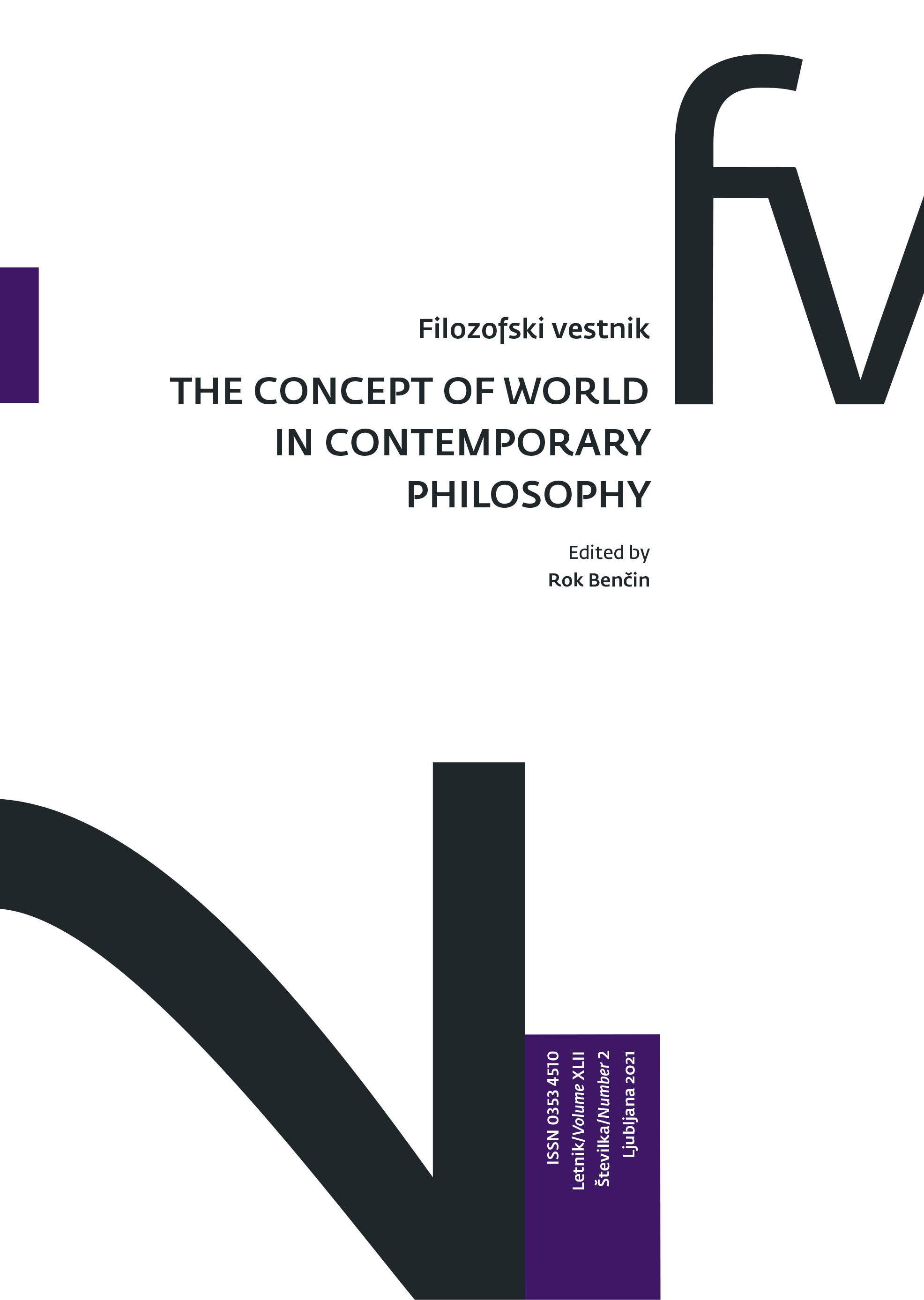The Actuality of a World: What Ceases Not to Be Written
DOI:
https://doi.org/10.3986/fv.42.2.05Keywords:
actuality, possible worlds, impossibility, Aristotelian modalities, Lacan and the sexual relationshipAbstract
“There is no longer any world,” wrote the late philosopher Jean-Luc Nancy in 1993, and in this paper, the sense of this loss of world is analysed in terms of the modal notions of necessity, impossibility, and possibility. Modal differentiation can illuminate what constitutes the sense of actuality in a world, and hence, what it is that has been lost regarding this actuality of being in a world. Modal thinking does not rely on knowledge of the true state of affairs, nor on having a constant grasp on necessity: modal thinking enables us to discern the actual by way of the relations between necessity, possibility, and impossibility. It is on the basis of these relations that a mode of rethinking actuality is suggested. In order to pursue this line of thought, I rely on Jacques Lacan’s understanding of modalities as writing operations, concentrating mostly on certain sections from his Seminar XXI (1973–1974), wherein he refers to Aristotelian modal logic and mentions the analytic philosopher Jaakko Hintikka (as one of Aristotle’s commentators). This ternary relation between Aristotle, Hintikka, and Lacan suggests a different outlook on the actual being-such of a world. The being-such of a world, its actuality, is understood as a contingency (what ceases not to be written), a possibility emerging from the relation between what is declared necessary and what is impossible. The paper shows the implications of such a modal understanding of actuality, as demonstrated in Lacan’s view of human sexuality and sexual difference.
Downloads
References
Franta, Benjamin, “Early Oil Industry Disinformation on Global Warming”, Environmental Politics, 30 (4/2021), pp. 663–668.
Hintikka, Jaakko, Time and Necessity: Studies in Aristotle’s Theory of Modality, Oxford, Oxford University Press, 1973.
Kripke, Saul, Naming and Necessity, Cambridge, MA, Harvard University Press, 1972.
Lacan, Jacques, On Feminine Sexuality: The Limits of Love and Knowledge, Book XX: Encore, trans. B. Fink, New York and London, W.W. Norton, 1998.
Lacan, Jacques, Séminaire XXI. Les non-dupes errant, 1973-1974, unpublished, trans. C. Gallagher, http://www.lacaninireland.com/web/translations/seminars/, accessed 8 December 2021. (The original transcript transcript is available at: http://gaogoa.free.fr/SeminaireS.htm, accessed 8 December 2021.)
Lewis, David, On the Plurality of Worlds, Oxford, Blackwell, 1986.
Loux, Michael J., “Introduction”, in M. J. Loux (ed.), The Possible and the Actual: Readings in the Metaphysics of Modality, Ithaca and London, Cornell University Press, 1979, pp. 15–64.
Nancy, Jean-Luc, The Sense of the World, trans. J. S. Librett, Minneapolis and London, The University of Minnesota Press, 1997.
Oreskes, Naomi and Erik Conway, Merchants of Doubt: How a Handful of Scientists Obscured the Truth on Issues from Tobacco Smoke to Climate Change, London, Bloomsbury, 2011.
Ronen, Ruth, Lacan with the Philosophers, Toronto and London, Toronto University Press, 2018.
Downloads
Published
Versions
- 2022-04-06 (2)
- 2021-12-31 (1)
How to Cite
Issue
Section
License
Copyright (c) 2021 Authors

This work is licensed under a Creative Commons Attribution-NonCommercial-NoDerivatives 4.0 International License.
Authors guarantee that the work is their own original creation and does not infringe any statutory or common-law copyright or any proprietary right of any third party. In case of claims by third parties, authors commit their self to defend the interests of the publisher, and shall cover any potential costs.
More in: Submission chapter





